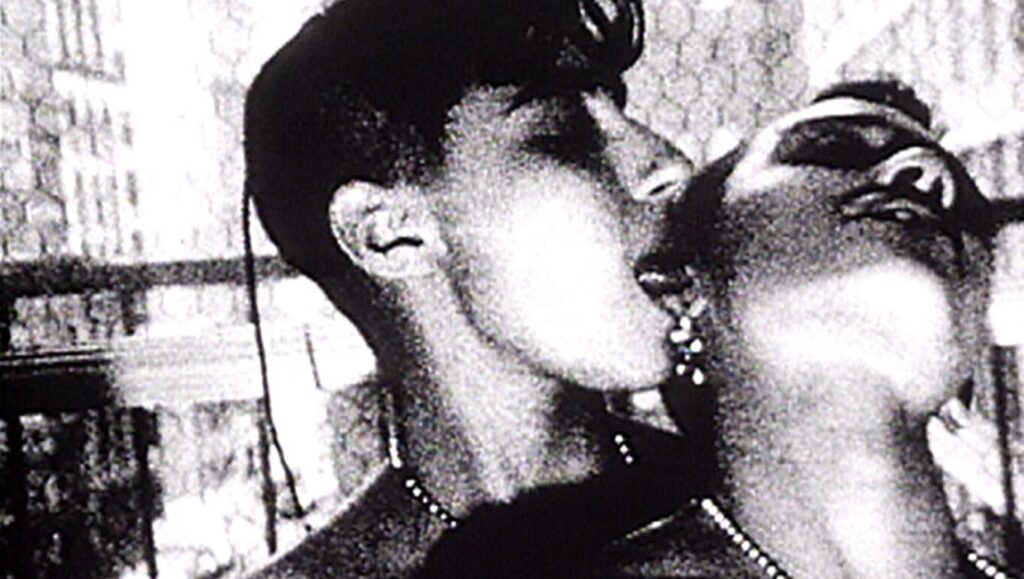Nitrate Kisses opens with a lengthy quote by Adrienne Rich, stating that “whatever is unnamed will become […] not merely unspoken, but unspeakable.” The two words of the title bump into each other, entering the frame from opposite sides. We are shown a collection of faded photographs, accompanied by a seemingly unrelated narration about a girl who tended to dress like a man, a Willa who went by Will, and a history that tried to erase her sexuality, to replace the person she felt herself to be with the person society wanted her to be. Hands appear on either side of the frame, pressing the images flat, and then inside the photographs themselves, touching the physical objects made to represent intangible histories — from a placard to a rusty spring. This tactility is something of a specialty for Hammer, as always she sought to make filmed reality tangible: we see the collapsed interiors and decrepit homes that perhaps once housed Will.
“[Women] disappear because, for whatever reason, lesbians are writing not very many biographies of our own.” After beginning on the close-up of a single biography, the film opens up to become a broad “investigation” “about” queer culture in 20th-century North America, yet without once yielding to the image of a talking head — in their relative obscurity, the speakers become the everywoman. Instead, the images yield to queer couples making love, and the first couple we see kissing are apparently septuagenarians. Then come images filmed from Hammer’s point of view, examining different patterns of found light in high contrast black-and-white 16mm, the most memorable of which plays with the dashes produced between the shadows of a beach pier — and the way she makes them move. The film essentially proceeds in a continuous flow state: it weaves between lovemaking in all its tender beauty, light phenomena, decrepit and crumbling landscapes, contemporary street life, and archival materials (be they objects, texts, or footage from other films).
As for sex, Hammer does not shy away from it, and in fact depicts it with an earnestness sorely lacking in the majority of contemporary filmmaking. By weaving it throughout the film so casually (and depicting myriad types of bodies and personalities engaged in love), she allows the act a normalcy it is rarely afforded onscreen — sex is on equal footing with factual biographies, inseparable from life itself; key to both its inception and continued joie de vivre.
The contemporary idea of documentary has grown into essentially two camps: one which faces down the great questions with supposed “right” answers and a tendency to focus on the facts without any care taken as to how one engages with the medium of moving images; the other tends to favor the image, often without even a clue about what the facts might be, apart from the literalness of the presented image. Nitrate Kisses walks this divide with elegance — it is an act of preservation which remains enamored with both the form and its subjects, an exuberant reminder that even the most serious topics and histories benefit from love.
Part of Kicking the Canon – The Film Canon.


Comments are closed.